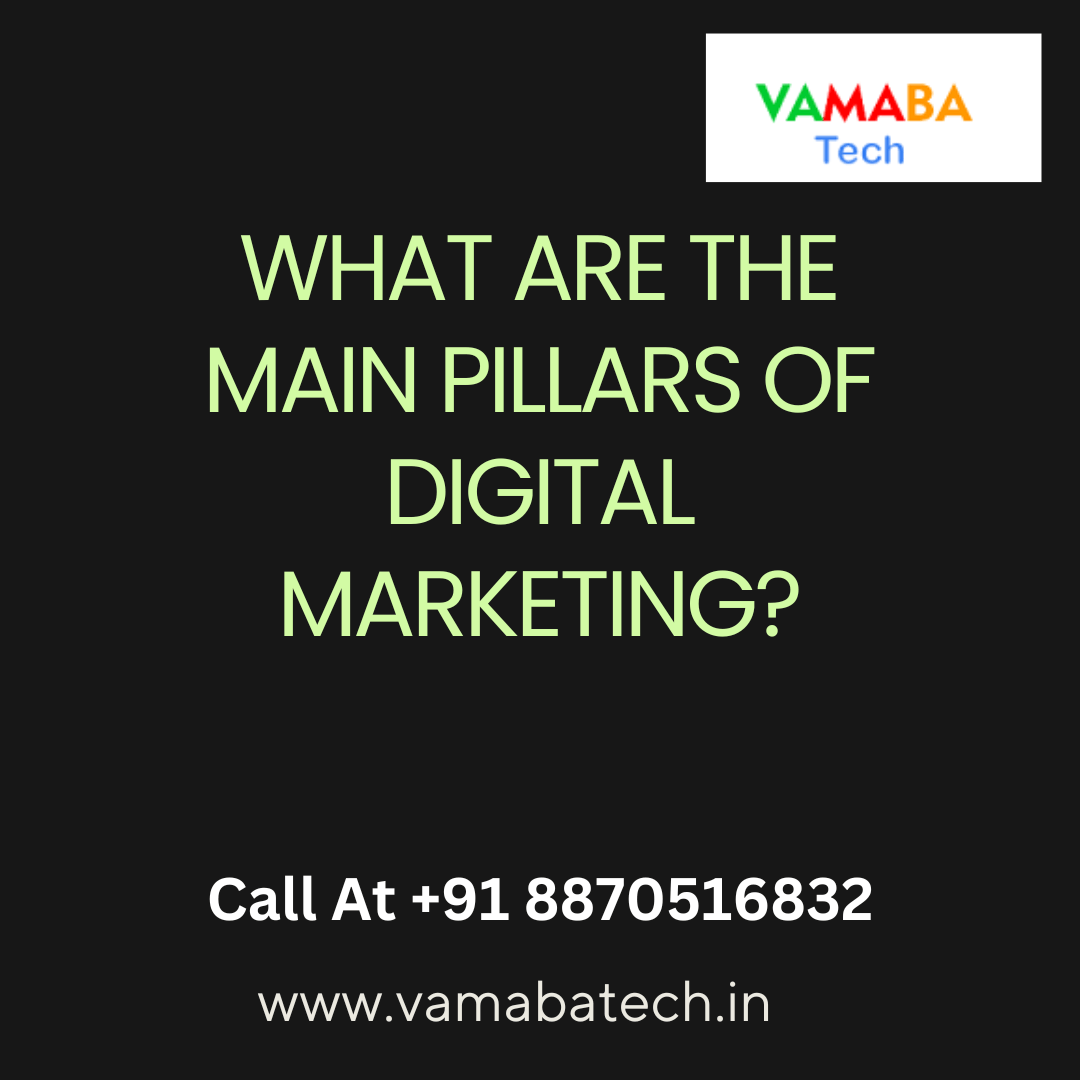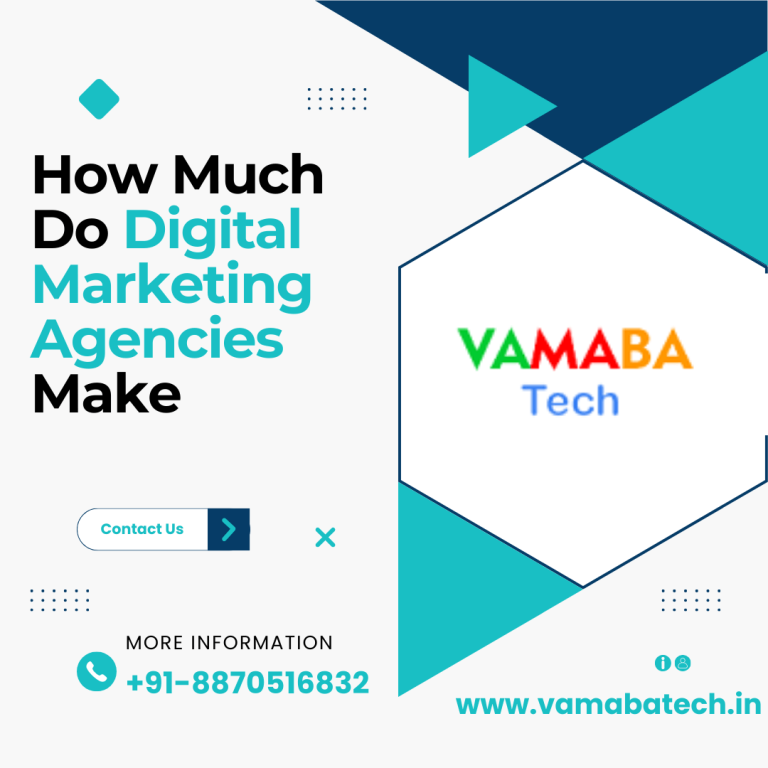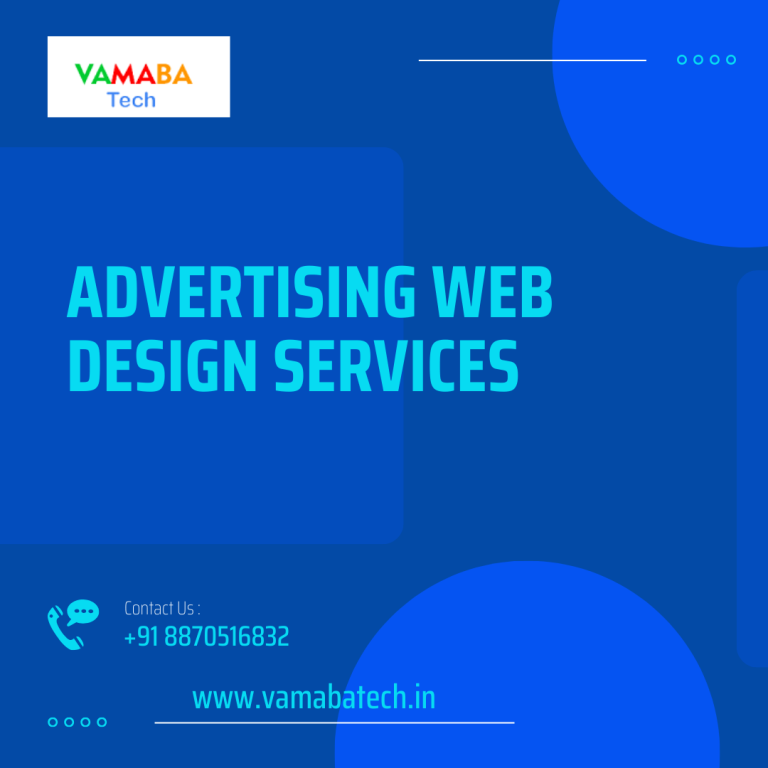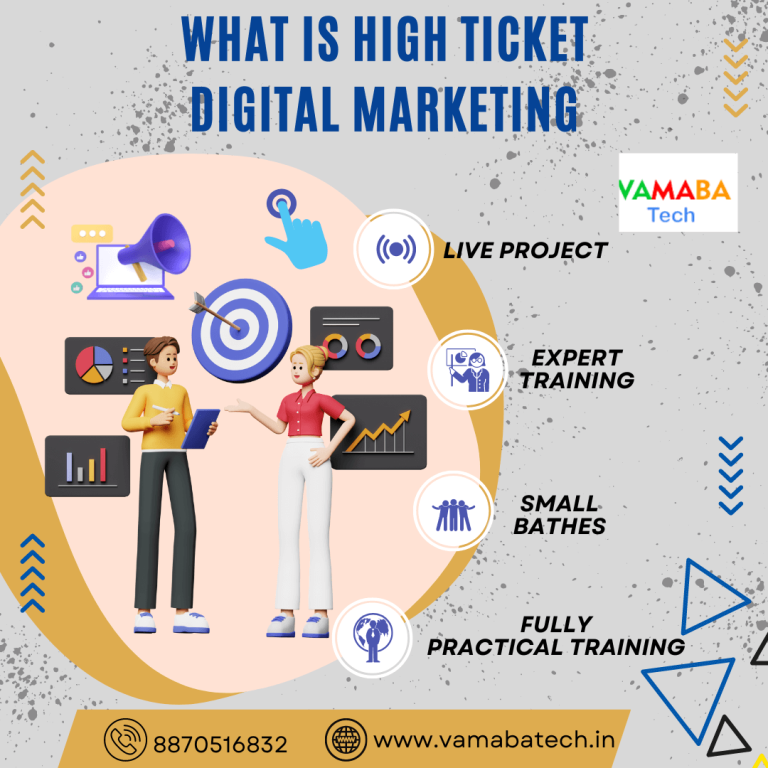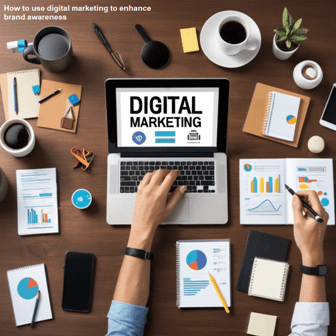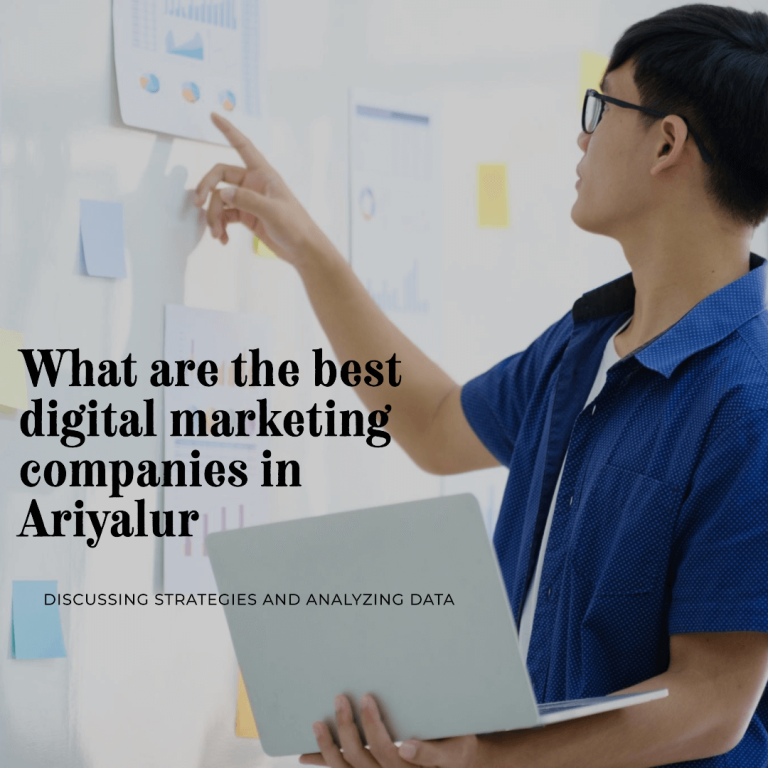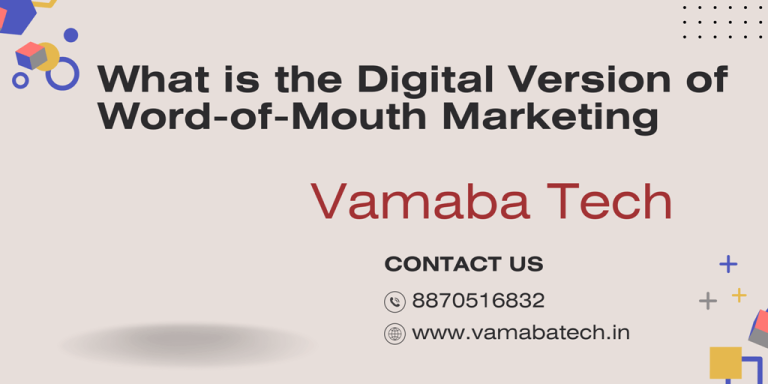What Are the Main Pillars of Digital Marketing
What Are the Main Pillars of Digital Marketing?
In the digital age, marketing has evolved to encompass a variety of online strategies and platforms. Digital marketing is no longer just an optional strategy for businesses; it’s a necessity. With the majority of consumers turning to the internet to research products, read reviews, and make purchases, businesses must have a strong online presence to remain competitive. In this article, we’ll delve into what are the main pillars of digital marketing?, providing insights into each one’s significance and how they interplay to create a comprehensive digital marketing strategy.
Key Takeaways:
- Digital marketing is essential for businesses to reach and engage their target audience.
- There are several core pillars of digital marketing, each with its unique benefits and challenges.
- Combining multiple digital marketing strategies can lead to a more holistic and effective approach.
Content Marketing
Content marketing is all about creating valuable, relevant, and consistent content to attract and retain a target audience. It’s not just about selling but providing information that makes your audience more informed.
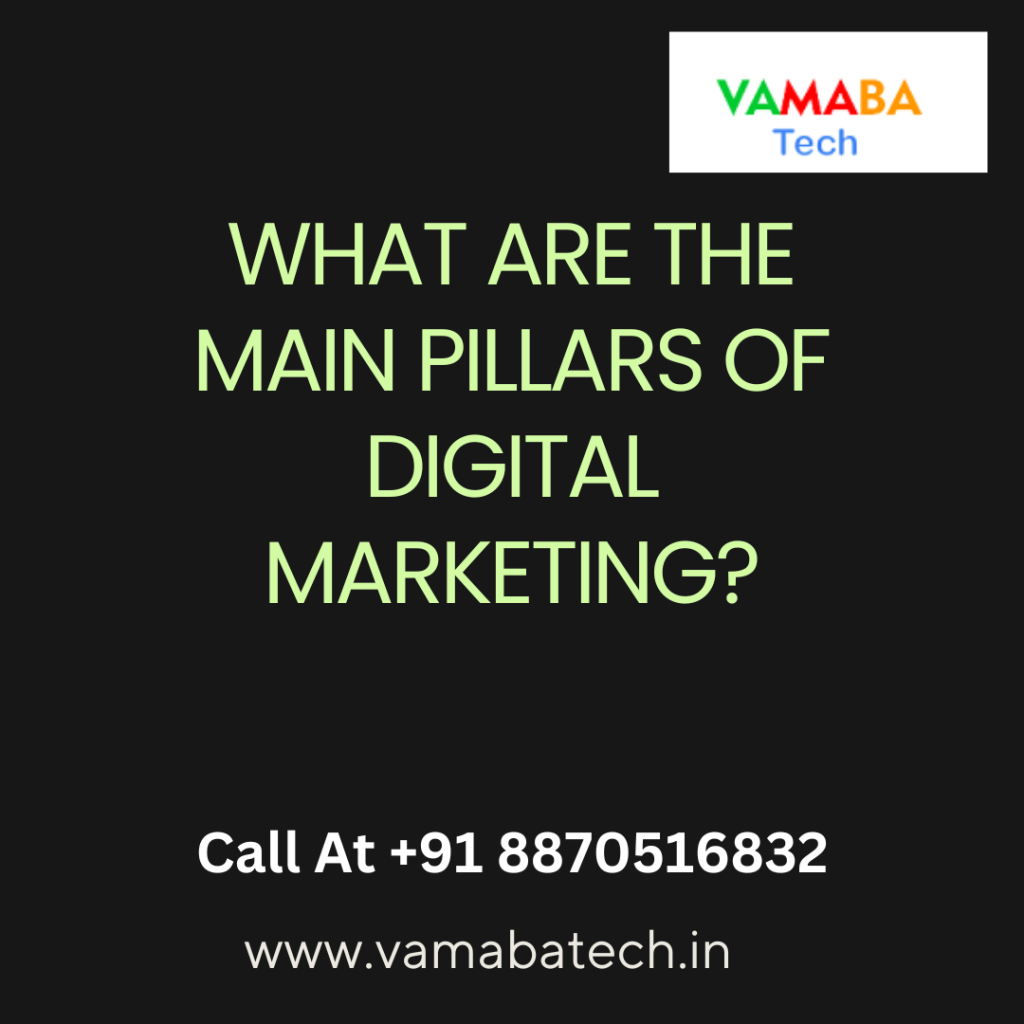
Why is it Important?
- Builds Trust: Regularly publishing insightful content establishes your brand as an industry expert.
- Boosts SEO: Quality content can improve your website’s search engine ranking, driving organic traffic.
- Engages Audience: It keeps your audience engaged, nurturing them through the sales funnel.
Search Engine Optimization (SEO)
SEO is the practice of optimizing your online content to rank higher on search engine results pages (SERPs). It’s about understanding what people are searching for and ensuring your content is easily discoverable.
Benefits of SEO
- Increased Visibility: Appear on the first page of search results for relevant queries.
- Cost-Effective: Unlike paid advertising, organic SEO doesn’t require continuous investment.
- Credibility: High SERP rankings can enhance your brand’s credibility.
Pay-Per-Click Advertising (PPC)
PPC is a model where advertisers pay a fee each time their ad is clicked. It’s a way to buy visits to your site rather than earning them organically.
Advantages of PPC
- Immediate Results: Unlike SEO, which takes time, PPC can offer immediate visibility.
- Targeted Traffic: Ads can be tailored to a specific audience or demographic.
- Budget Control: Spend as much or as little as you want.
Social Media Marketing
Social media platforms, such as Facebook, Instagram, and Twitter, offer businesses a way to engage with their audience in real time. It’s about building a community around your brand.
Why Use Social Media?
- Brand Awareness: Introduce your brand to a broader audience.
- Engagement: Interact with your customers and address their concerns.
- Drive Traffic: Use social platforms to lead users to your website.
Email Marketing
Email marketing is a way to reach your audience directly in their inbox. It’s personal, targeted, and offers one of the highest ROI among digital marketing strategies.
Benefits of Email Marketing
- Direct Communication: Speak directly to your audience without any barriers.
- High Conversion Rates: Tailored email campaigns can lead to higher click-through rates.
- Cost-Effective: Reach a large audience with minimal investment.
Affiliate Marketing
Affiliate marketing involves partnering with external entities to promote your products or services. In return, these affiliates earn a commission for every sale or lead they generate.
Why Consider Affiliate Marketing?
- Extended Reach: Tap into the affiliate’s audience to expand your brand’s reach.
- Cost-Effective: Pay only for actual sales or leads, not for visibility.
- Performance-Based: Affiliates are incentivized to promote your products effectively.
Video Marketing
With the rise of platforms like YouTube, video content has become a crucial digital marketing pillar. Videos can explain complex topics simply, engage users, and drive traffic.
Advantages of Video Marketing
- Engaging Content: Videos can hold user attention better than textual content.
- Boosts Conversions: Videos can lead to higher conversion rates on landing pages.
- Enhances Understanding: Complex topics can be explained simply with visual aids.
Tables with Relevant Facts
| Digital Marketing Pillar | Importance | Key Benefit |
|---|---|---|
| Content Marketing | High | Builds Trust |
| SEO | Essential | Organic Traffic |
| PPC | Optional | Immediate Results |
| Social Media | High | Brand Engagement |
| Email Marketing | Essential | Direct Communication |
Influencer Marketing
Influencer marketing leverages the reach and credibility of individuals who have a significant following on social media or other online platforms. These influencers collaborate with brands to promote products, services, or campaigns to their audience.
Why Engage in Influencer Marketing?
- Authentic Promotion: Influencers can introduce your brand in a more genuine and relatable manner.
- Reach Niche Audiences: Influencers often have a specific demographic of followers, allowing for targeted promotions.
- Boost Brand Image: Associating with a well-respected influencer can elevate your brand’s image.
Mobile Marketing
With the majority of internet users accessing the web via mobile devices, mobile marketing has become a crucial pillar of digital marketing. It involves reaching audiences through smartphones, tablets, and other mobile devices.
Significance of Mobile Marketing
- Immediate Access: Reach your audience anytime, anywhere.
- Personalized Experience: Tailor content based on user behavior and preferences.
- Geo-Targeting: Deliver content and ads based on a user’s location.
Web Analytics
Web analytics is the measurement, collection, and analysis of web data to understand and optimize web usage. It’s not just about collecting data but deriving actionable insights from it.
Why is Web Analytics Essential?
- Understand User Behavior: Know what content resonates with your audience.
- Optimize Campaigns: Adjust marketing strategies based on real-time data.
- Increase ROI: Allocate resources to strategies that yield the best results.
Chatbots and AI
Artificial Intelligence (AI) and chatbots are revolutionizing the way businesses interact with their customers online. These automated systems can handle customer queries, process orders, and provide personalized product recommendations.
Benefits of Chatbots and AI
- 24/7 Customer Support: Chatbots can assist customers round the clock.
- Cost Savings: Reduce the need for extensive customer support teams.
- Personalized Experience: AI can analyze user data to provide tailored product or content suggestions.
By understanding and effectively implementing these pillars, businesses can create a robust digital marketing strategy that resonates with their target audience, drives conversions, and fosters brand loyalty.
Delving Deeper into Digital Marketing
As we continue our exploration into the vast realm of digital marketing, it’s essential to understand that the digital landscape is ever-evolving. With new technologies, platforms, and strategies emerging regularly, businesses must stay agile and informed to remain competitive. In this section, we’ll delve deeper into some advanced aspects of digital marketing and address frequently asked questions.
Programmatic Advertising
Programmatic advertising automates the decision-making process of media buying by targeting specific audiences and demographics. It uses AI to automate ad buying, placing ads based on real-time data.
Why Opt for Programmatic Advertising?
- Efficiency: Automated ad buying can be more efficient and faster than traditional methods.
- Precision: Target ads based on specific data points, ensuring they reach the right audience.
- Real-time Optimization: Adjust campaigns in real-time based on performance data.
Voice Search Optimization
With the rise of voice-activated devices like Amazon’s Alexa, Google Assistant, and Apple’s Siri, optimizing for voice search has become crucial.
Importance of Voice Search Optimization
- Growing Usage: More people are using voice-activated devices for search queries.
- Different Search Patterns: Voice searches are often more conversational and longer than typed queries.
- Local SEO Benefits: Many voice searches are local, e.g., “restaurants near me.”
Augmented Reality (AR) and Virtual Reality (VR) in Marketing
AR and VR offer immersive experiences, allowing brands to engage users in unique ways. From virtual try-ons to interactive 3D ads, these technologies are reshaping digital marketing.
Benefits of AR and VR in Marketing
- Engaging Experiences: Offer users interactive and immersive brand experiences.
- Enhanced Product Visualization: Allow users to visualize products in their environment before purchasing.
- Memorable Brand Interactions: Create lasting impressions that can drive brand loyalty.
Frequently Asked Questions (FAQs)
1. How do I start with digital marketing?
Begin by defining your goals, understanding your target audience, and selecting the right digital marketing channels. Investing in a good digital marketing course or hiring experts can also be beneficial.
2. How much budget should I allocate to digital marketing?
The budget varies based on business size, goals, and industry. Start small, measure the ROI, and adjust accordingly.
3. Is digital marketing suitable for small businesses?
Absolutely! Digital marketing offers cost-effective solutions and a level playing field for businesses of all sizes.
4. How do I measure the success of my digital marketing efforts?
Use web analytics tools, monitor KPIs (Key Performance Indicators), track conversions, and measure ROI to gauge success.
5. Can I handle digital marketing on my own?
While it’s possible, digital marketing encompasses various aspects. Depending on your expertise and time, you might benefit from hiring specialists or using automated tools.
By integrating these advanced strategies and staying updated with the latest trends, businesses can ensure they remain at the forefront of the digital marketing landscape. Remember, the key to successful digital marketing lies in understanding your audience, being authentic, and continuously adapting to the ever-changing digital world.

